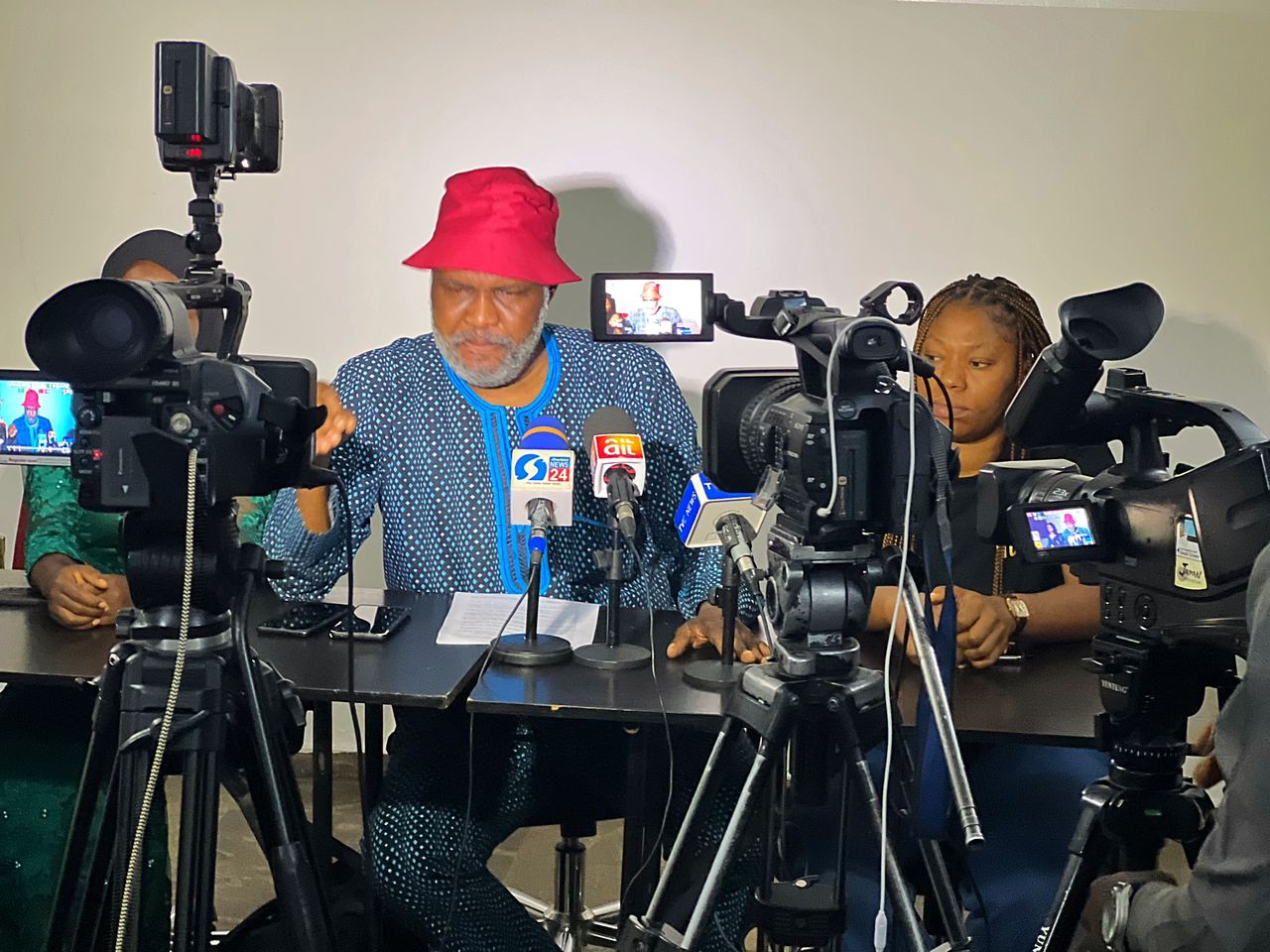The Human Rights Writers Association of Nigeria (HURIWA) has strongly condemned President Bola Ahmed Tinubu’s recent economic policies, accusing him of undermining Nigeria’s sovereignty.
This critique follows Tinubu’s dramatic policy shift, which contrasts sharply with his previous opposition to similar measures under former President Goodluck Jonathan.
In a press statement, HURIWA recalled that before becoming president, Bola Ahmed Tinubu was a vocal critic of the International Monetary Fund (IMF) and World Bank’s economic prescriptions.
The association noted that during Jonathan’s administration, Tinubu, along with other prominent figures including then-opposition leader Muhammadu Buhari, fiercely opposed recommendations such as the removal of subsidies and the devaluation of the Naira.
They argued that these policies would harm Nigeria’s economic stability and undermine its sovereignty.
“However, since taking office, Tinubu has adopted and intensified these very policies, leading to accusations of hypocrisy from various quarters,” HURIWA stated.
Critics have labeled Tinubu’s reversal a betrayal of his earlier principles, asserting that his current endorsement of IMF and World Bank measures represents a significant departure from his previous stance and compromises Nigeria’s economic independence.
READ ALSO: HURIWA debunks false report, commends soldiers for preventing carnage in Asese
HURIWA argued that the devaluation of the Naira and the implementation of foreign-influenced economic policies weaken Nigeria’s financial sovereignty.
The association emphasized that by aligning Nigeria’s economic strategy with foreign interests, the current administration is ceding control over the country’s financial system to external forces, diminishing the nation’s economic autonomy, and subjecting Nigeria to international economic pressures.
In addition to economic criticisms, HURIWA linked these policies to broader security concerns. The association contended that the failure of Nigeria’s security agencies to effectively protect the country’s borders is directly related to the administration’s economic strategies.
According to HURIWA, inadequate border security has allowed armed non-state actors and criminals to infiltrate the country, further threatening Nigeria’s sovereignty. This situation, they argue, is a consequence of prioritizing foreign economic directives over national stability and security.
HURIWA also called for the government to adhere to the Central Bank of Nigeria (CBN) Act, which obliges the administration to stabilize the Naira. The association emphasized that protecting the national currency is crucial for maintaining Nigeria’s economic sovereignty and stability.
Additionally, HURIWA urged the government to enhance efforts to secure Nigeria’s borders, reinforcing measures to prevent the infiltration of terrorists, arms smugglers, and other illicit actors.
Drawing comparisons with other nations, HURIWA highlighted how countries like the United States, Canada, Australia, and the United Kingdom have successfully defended their economic and territorial sovereignty.
READ ALSO: HURIWA endorses senator John Enoh’s inclusive sports development Initiatives
“These countries have implemented policies that prioritize national interests, maintaining strong control over their economic systems and borders. For instance, the United States has resisted external pressures to devalue the Dollar, ensuring a stable currency that supports its economic strength. Similarly, Australia and Canada have fortified their borders against illegal entries, safeguarding their territorial integrity,” HURIWA added.
HURIWA further argued that Nigeria’s political leaders should adopt similar strategies to protect both economic stability and national security. The association suggested that by resisting foreign-imposed economic measures and focusing on strengthening border protection, Nigeria can safeguard its sovereignty and ensure a more secure and prosperous future.
“HURIWA’s criticism of President Tinubu’s policy reversal underscores the broader implications of adopting IMF and World Bank directives. Our call for adherence to the CBN Act and the enhancement of border security highlights the interconnectedness of economic policies and national sovereignty.
As Nigeria faces ongoing economic and security challenges, our recommendations offer a pragmatic approach to achieving stability and defending the nation’s interests against external influences,” HURIWA concluded.

 Football6 days ago
Football6 days ago
 Entertainment5 days ago
Entertainment5 days ago
 Football1 week ago
Football1 week ago
 Business5 days ago
Business5 days ago
 Football1 week ago
Football1 week ago
 Football6 days ago
Football6 days ago
 Crime6 days ago
Crime6 days ago
 Health5 days ago
Health5 days ago

